Bambu Lab, AviaGames, and many others moved from MSK to AutoMQ, after facing the same struggles with over-provisioning costs, cross-AZ fees, and manual operations.
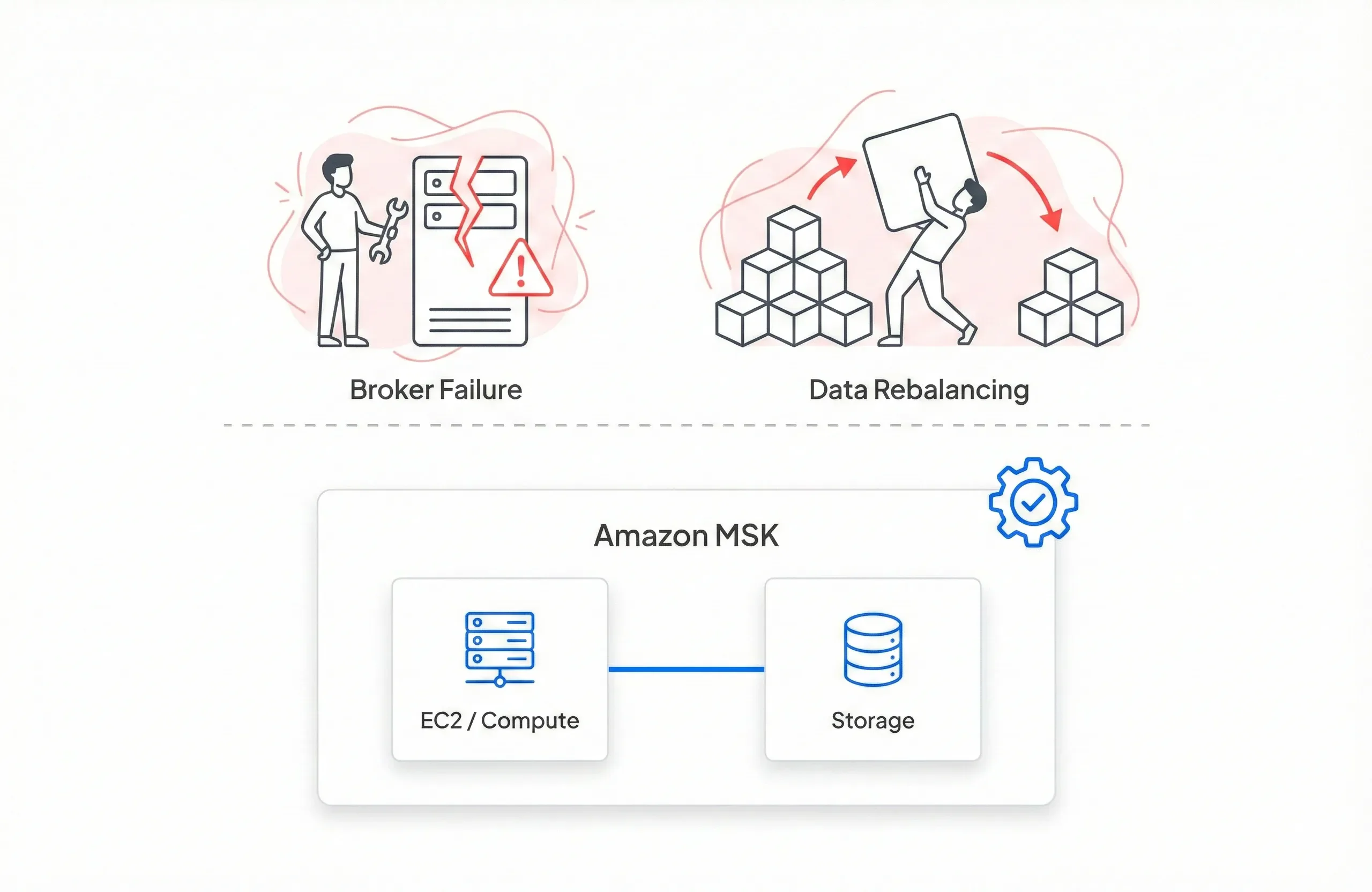
AWS hosts the nodes, but you still handle broker failures and manual data rebalancing.
Partition movement is manual and tedious, the operational burden stays firmly on your team.
MSK provides the cluster but denies you the tools—no native UI, API, or granular Terraform support.
100% over-provisioning becomes your only expensive strategy to handle traffic spikes safely.
You cannot shrink storage easily, forcing you to pay for unused EBS capacity 24/7.
Scaling takes hours of manual, risky operational work—far from true cloud elasticity.
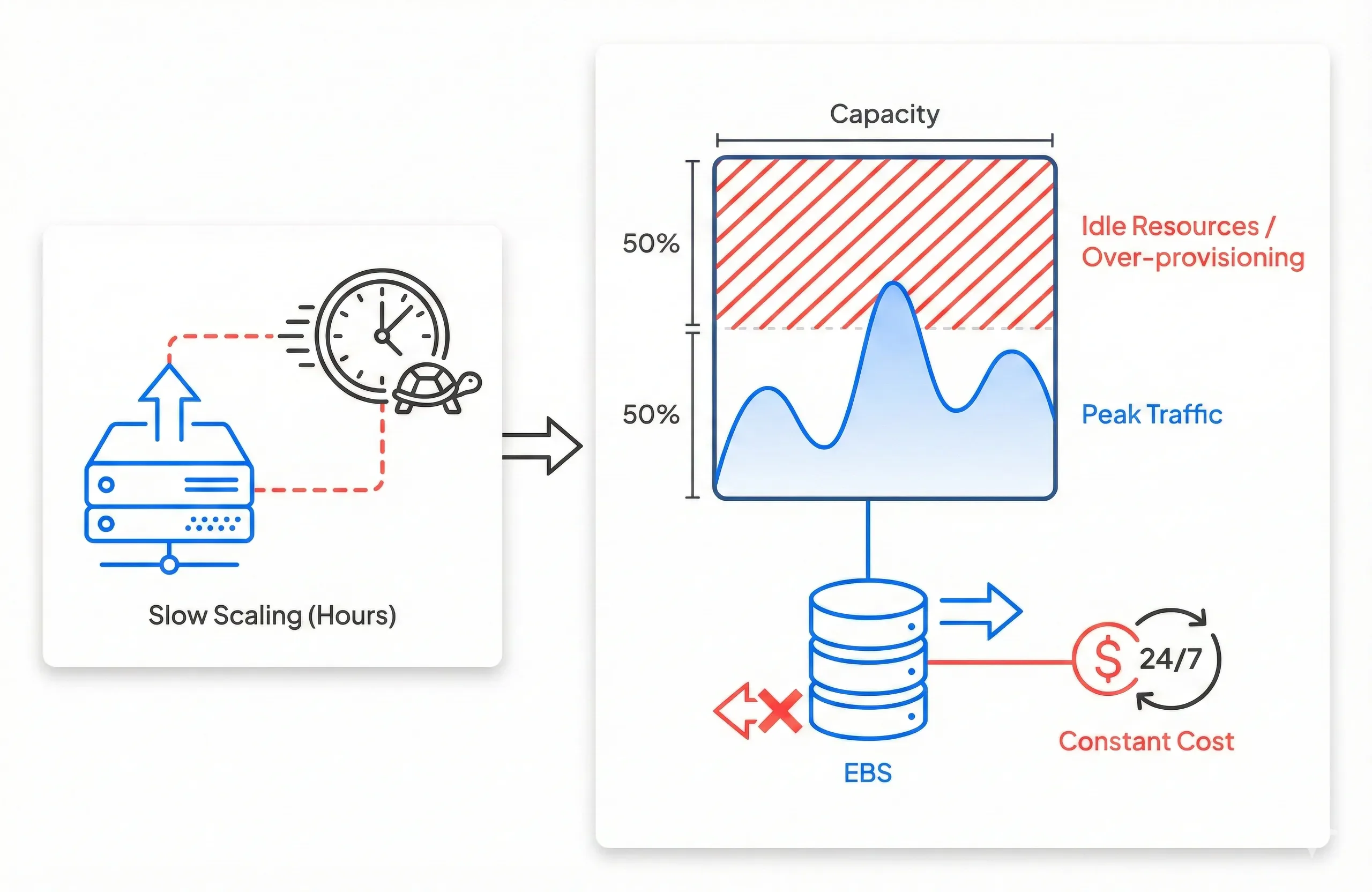
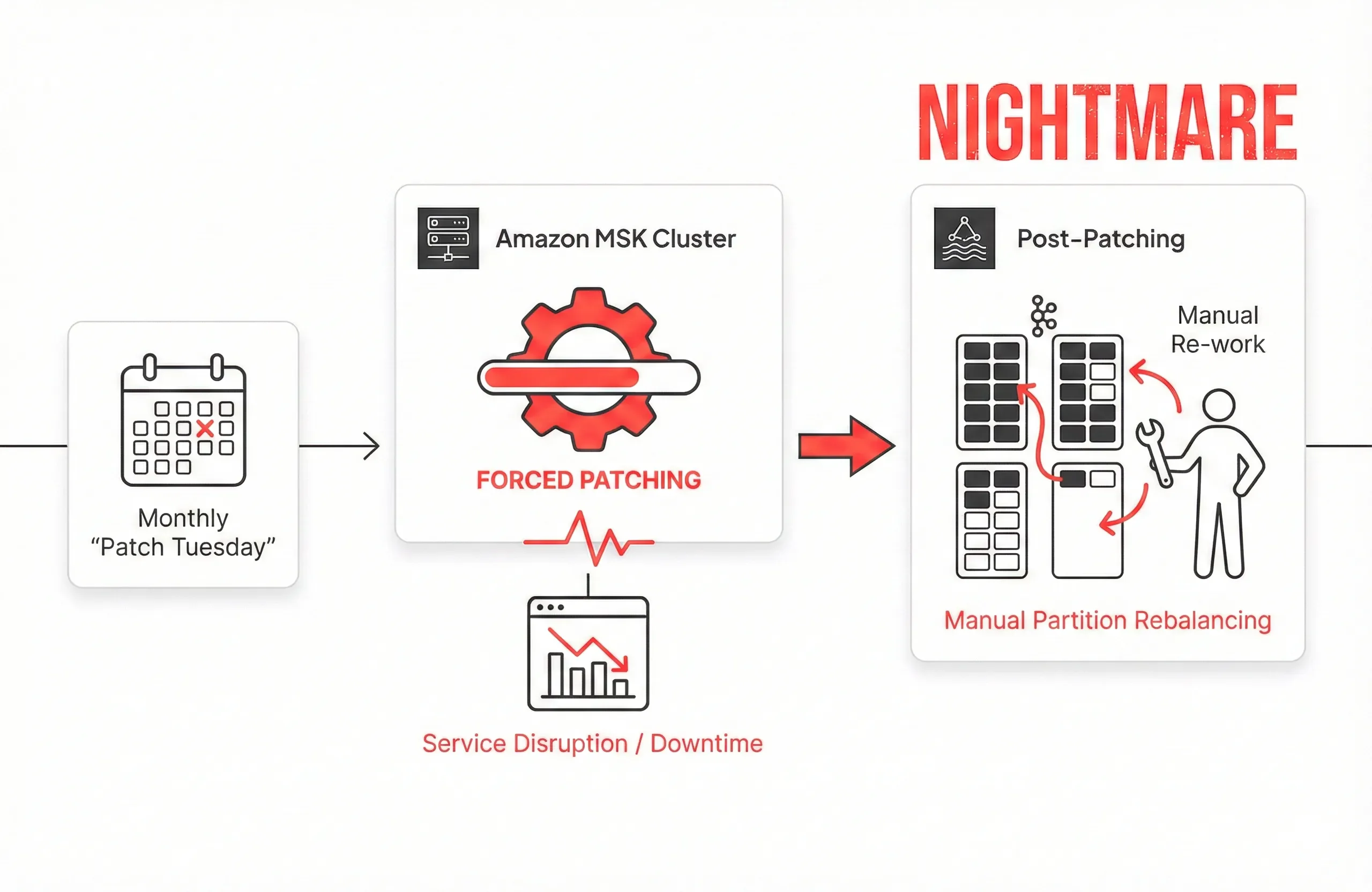
Mandatory patching takes hours, causing long client perturbations and instability.
Every restart leaves partitions unbalanced, requiring costly manual maintenance to fix.
Your Zookeeper cluster is a dead end; MSK offers no in-place upgrade path to modern KRaft.
Producers and Consumers trigger expensive, hard-to-audit data transfer fees whenever they communicate across Availability Zones.
In high-throughput workloads, these hidden network charges often cost more than the MSK instances themselves.
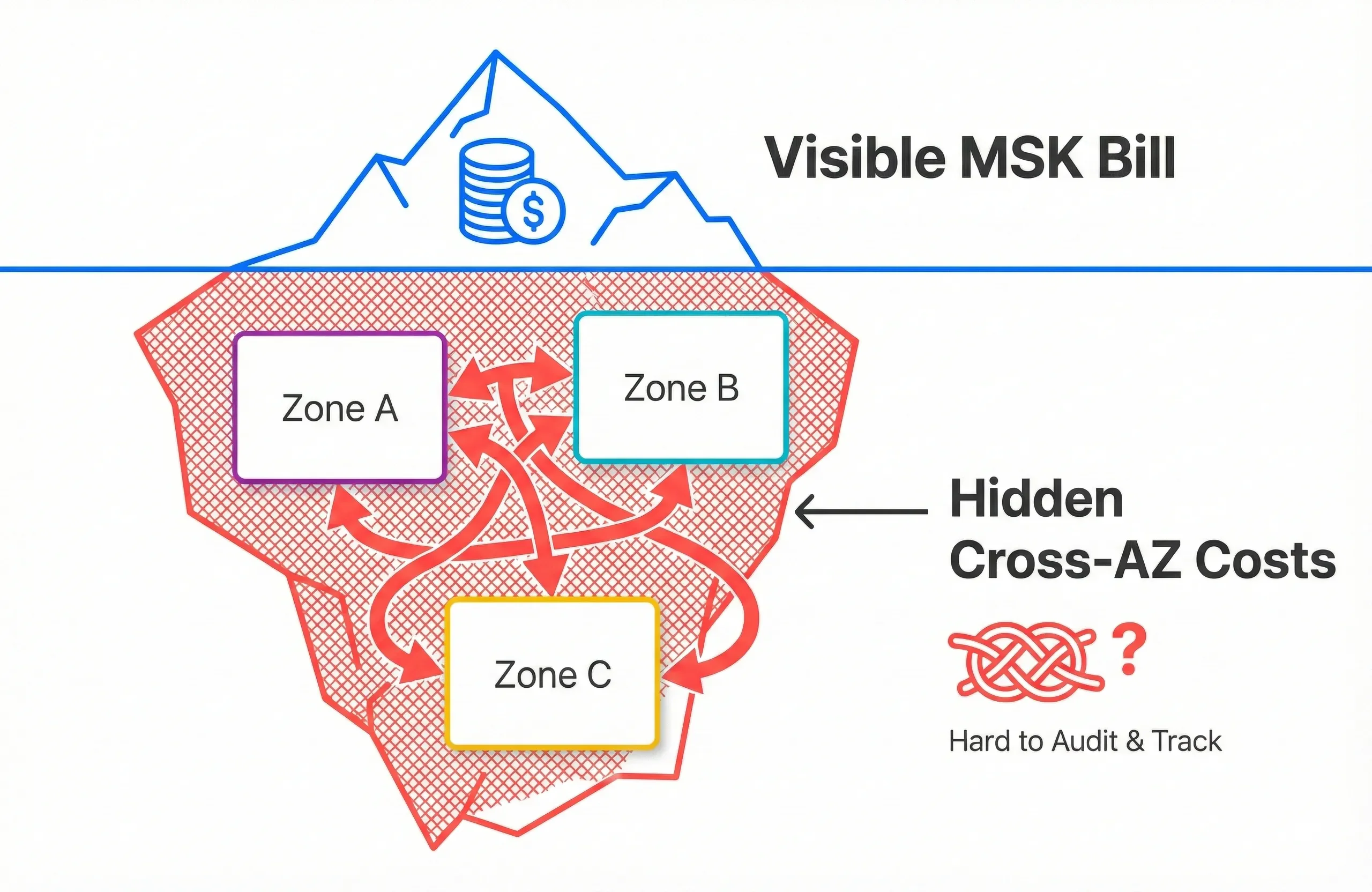
No EBS. No over-provisioning. No cross-AZ fees. No manual rebalancing. No patching nightmares. Just pure, elastic, cloud-native Kafka that scales in seconds—not hours—with 100% compatibility and zero operational overhead.
| Category | Service | AutoMQ | AWS MSK |
|---|---|---|---|
| Deployment | IaC Control Panel | ||
| IaC Data Panel | No APIs, or proper Terraform support for Kafka resources | ||
| BYOC | |||
| Multi-Cloud Support | (AWS Only) | ||
| Kafka UI | |||
| EKS or Kubernetes Support | Chart or Operator, select your preference. | ||
| Operate | Infra Monitoring | Proactive monitoring | Reactive monitoring |
| Topic Monitoring | Free, pre-aggregated metrics | Topic-level metrics cost extra | |
| Upgrades | Always the latest stable release | Limited version support | |
| Software Patches | Proactive Fixes |
| |
| Migration | Byte-to-Byte Replication (Offset Preservation) | ||
| Zero-downtime migration | No In-Place Upgrade Path for you Zookeeper-based clusters | ||
| Auto Balancing & Stability | By Traffic | ||
| By QPS | |||
| By Partition Numbers | |||
| By Catch-up Traffic | |||
| By CPU/Mem Usage | |||
| Slow Node Isolation | |||
| Catch-up Traffic Isolation | |||
| Scale | Cluster Expansions in Seconds |
| |
| Cluster Shrinkages in Seconds | Pay for idle EBS | ||
| Storage | PAYG for storage | Object Storage | EBS Overprovision |
| Storage Cost | 0.024USD/GB/M | Standard: 0.10USD/GB/M Tiered: 0.06USD/GB/M | |
| Storage Compactibility | Tiered Storage has many limitations:
| ||
| Traffic Cost (Cross-AZ) | Producer | 0 | $0.01/GB |
| Consumer | 0 | $0.01/GB | |
| Replication | 0 | 0 | |
| Integration | Prometheus | ||
| OTLP | |||
| Grafana | |||
| Data Lake | |||
| (Native Iceberg Support) |
Typical production workload: 100 MiB/s write · 300 MiB/s read · 5,000 partitions · 72h retention
* Pricing based on publicly listed prices. MSK bundles compute & storage costs into its managed service fee.
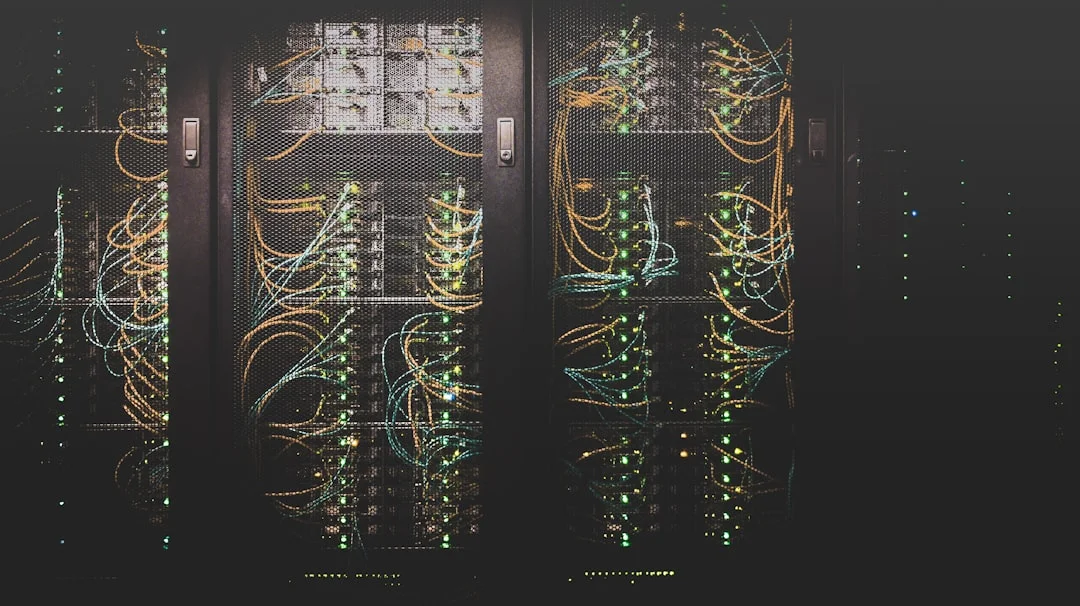
Teams migrated from MSK to AutoMQ for simplified operations, elastic scaling, and transparent pricing—all within their own cloud.
Don't see an answer to your question? Check our docs, or contact us.
Available on Cloud Marketplaces
Subscribe to AutoMQ directly from your preferred cloud platform